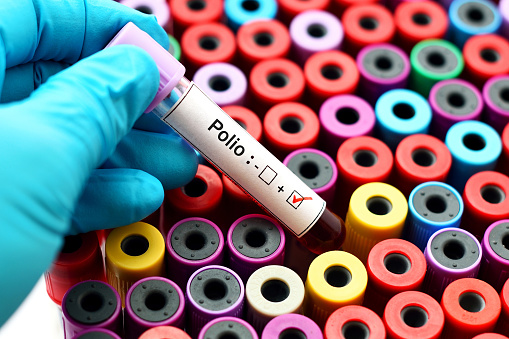At a three-day meeting in Nairobi, Kenya, the Federal Government of Somalia, the World Health Organization (WHO), and members of the Global Polio Eradication Initiative (GPEI) recommitted to ending the ongoing outbreak of circulating poliovirus type 2 (cVDPV2) in Somalia. At the meeting, senior representatives from the Bill & Melinda Gates Foundation (BMGF), the Centers for Disease Control and Prevention (CDC), Rotary International, Save the Children, the United Nations Children’s Fund (UNICEF), and other UN agencies and partners joined HE Fawziya Abikar Nur, Federal Minister of Health and Human Services, and Dr Mamunur Rahman Malik, WHO Representative to Somalia and Head of Mission.
The Somalia Polio Eradication Action Plan 2022 was endorsed by the government, GPEI partners WHO, UNICEF, the BMGF, CDC, Rotary International, GAVI, the Vaccine Alliance, and other key partners to reaffirm their commitment.
The Somalia Polio Eradication Action Plan 2022 lays forth a four-point plan to halt the present outbreak, which is one of the longest-running cVDPV2 outbreaks ever documented. The comprehensive plan aims to focus partners’ efforts and resources on increasing population immunity, making concerted efforts to reach high-risk populations — such as inaccessible and nomadic communities, as well as internally displaced people — to strengthen their immunity, improving the search for poliovirus circulation, and improving coordination among all stakeholders. Intensifying efforts to provide five opportunities for polio vaccine by 2022, offering routine childhood immunization in high-risk areas where children have missed out on vaccinations, and enhancing community participation are just a few of the methods that will be implemented.
. Given the ease with which the cVDPV2 virus can spread over international boundaries, the emergency plan also calls for better cross-border coordination between the polio eradication programs in Somalia, Kenya, Ethiopia, and Djibouti.
“In the midst of the ongoing drought and while recovering from the effects of the COVID-19 pandemic, our stakeholders must not forget how critical it is to contain the ongoing poliovirus outbreak so that it does not spread further and affect any more children’s lives,” said Federal Minister of Health and Human Services HE Fawziya Abikar Nur. “On this occasion, I’d like to express my heartfelt gratitude to all of our partners and donors for the tremendous efforts they’ve made over the years to protect millions of Somali children from polio.”
“Since its inception 25 years ago, Somalia’s polio eradication campaign has achieved success, notably halting wild poliovirus outbreaks and, most recently, a circulating poliovirus type 3 outbreak in 2021. We can do more not only to stop the present outbreak but also to achieve broader health system goals by integrating and effectively using our personnel and operational resources, as the program has developed a vast network of polio workforce and assets. Since 2018, Somalia has carried out a number of further immunization initiatives. Despite these efforts, due to insecurity and restricted access to health care, pockets of unvaccinated children remain,” stated Dr. Mamunur Rahman Malik, WHO Representative in Somalia.
Stopping cVDPV transmission and preventing outbreaks in non-endemic countries is one of the aims mentioned in the GPEI’s ‘Polio Eradication Strategy 2022–2026: Delivering on a Promise’, which will be implemented in 2022. It also aligns with Somalia’s national objectives and the United Nations Sustainable Development Goals (SDGs).

